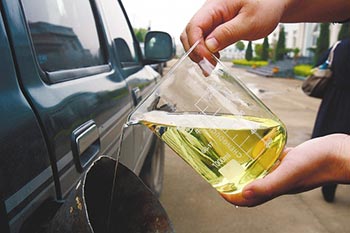The direct use of crude vegetable oils in diesel engines is envisageable, but could lead to numerous technical problems. For example, their characteristics (high viscosity, high density, difficulty to vaporize in cold conditions) cause deposits in the combustion chamber, with a risk of fouling and an increase in most emissions (Basha et al., 2009). These … Read More
vegetable oil
Quality Standrad of Biodiesel
Widely applicable biodiesel and low cost. Biodiesel is applicable as fuel oil in diesel engine, but also mixing with diesel at any ratio. Biodiesel technology can reduce human dependence on oil energy, solve problem of diesel exhaust emission essentially, improve air pollution and protect environment. This superior biodiesel technology is widely applied in biodiesel preparing … Read More
Basic Principles Of Diesel Engine
The Direct Injection Engine (DI) The engine uses the heat caused by compressing air in a cylinder, with a piston, to ignite fuel oil which is injected into the cylinder. This oil burns and creates an increase in pressure which forces the piston back down the cylinder, providing the power. The burnt gasses are exhausted … Read More
What Is Biodiesel Fuel?
Biodiesel refers to a vegetable oil – or animal fat-based diesel fuel consisting of long-chain alkyl (methyl, ethyl, or propyl) esters. Biodiesel is typically made by chemically reacting lipids (e.g., vegetable oil, soybean oil, animal fat with an alcohol producing fatty acid esters. Biodiesel is meant to be used in standard diesel engines and is … Read More
